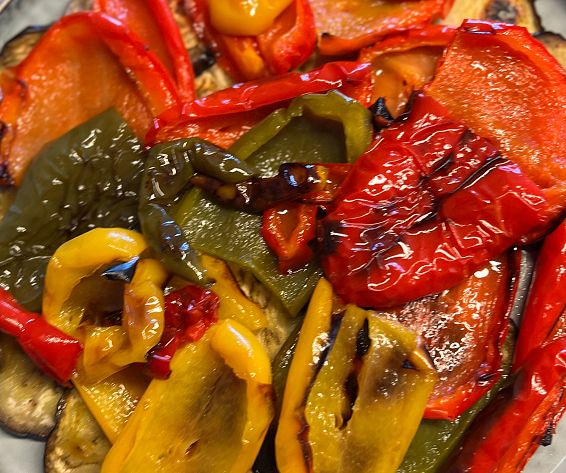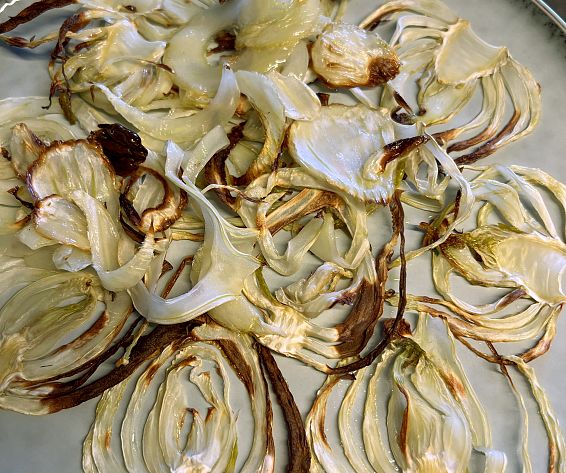Power from plants - How plant-based nutrition supports athletic performance
Eating plants, building muscle, pushing boundaries: For many, this long sounded like a contradiction in terms. Today, sports science clearly shows that those who eat a plant-based diet do not have to sacrifice either power or regeneration. On the contrary. If implemented correctly, a plant-based diet can not only improve athletic performance - but also make you healthier, more sustainable and more conscious in the long term. A look at facts, role models and the potential of plant-based power for your active everyday life.
From niche concept to performance standard
Just a few years ago, vegan sports nutrition was one thing above all: in need of explanation. Top athletes who abstained from animal products were considered exotic. Today, the picture is different: whether Lewis Hamilton, Venus Williams or Patrik Baboumian - they all show that a plant-based diet is not a hindrance but an advantage in high-performance sport. And interest is also growing rapidly in everyday life.
A review published in the Journal of the International Society of Sports Nutrition (2021) came to the conclusion: "A well-planned plant-based diet can fully meet the energy needs of athletes and provide all essential nutrients - without compromising performance." In endurance sports in particular, studies also show positive effects on cardiovascular health, recovery capacity and inflammatory markers.
Why plant power works - the physiological perspective
A plant-based diet is not automatically healthy. But when combined correctly, it can even bring benefits during training:
- More micronutrients: Plant foods provide plenty of antioxidants, phytochemicals, magnesium, potassium and fibre - important for regeneration, muscle and nerve function.
- Lower inflammation levels: Studies show that a vegan diet tends to be associated with lower inflammation levels - which can improve recovery after intense exercise.
- Stable energy: Complex carbohydrates from wholemeal products, pulses or quinoa provide long-lasting power - ideal for endurance or interval training.
- Better acid-base balance: Plant-based foods have a less acid-forming effect overall - according to research, this can reduce muscle fatigue.
The biggest myths - and what's really true
"But where does the protein come from?"
A classic. But plant-based protein is no longer a deficiency - if you know what's important. Combinations of pulses (lentils, chickpeas, beans), cereals (oats, quinoa, millet) and nuts or seeds provide a complete amino acid profile. Those who train more intensively can also work with high-quality vegetable protein powders (e.g. based on peas, hemp or rice).
"Plants don't fill you up."
Quite the opposite: the high density of fibre ensures long-lasting satiety - without the usual energy slump after heavy meals. At the same time, a plant-based diet has a positive effect on blood sugar levels.
"That's a lot of work."
Not necessarily. If you know a few basics, you can eat quickly, deliciously and nutritiously with little effort. Bowls, curries, soups and homemade snacks in particular are easy to prepare - and taste great on the go or after a workout.
What the body really needs - and how to get it
A plant-based diet works best when it is balanced. This means: as colourful, as wholesome and as fresh as possible. However, those who eat a plant-based diet should also pay attention to critical nutrients - for example:
- Vitamin B12: Must be supplemented in a vegan diet - either via fortified foods or supplements.
- Iron: Found in pulses, wholegrains, pumpkin seeds and green vegetables - absorption is boosted by vitamin C (e.g. citrus fruits, peppers).
- Omega-3 fatty acids: Ideal from linseed, walnuts or algae oil.
- Protein: Combine enough - or supplement if you do a lot of strength training.
- Calcium & vitamin D: Ensure sufficient intake, especially in winter - for example through plant milk with added calcium and regular outdoor exercise.
A lifestyle with attitude - and many benefits
Plant-based nutrition is not a dogma, but an invitation: to eat more consciously, to understand your own body better and to tap into new sources of energy. If you do it intelligently, you soon realise that nothing is missing from your plate - and that lightness, performance and joie de vivre can be wonderfully combined.
Many of those who have embarked on the plant-based path report not only physical benefits, but also mental clarity, better sleep and a stronger connection to themselves. Perhaps because a diet that favours naturalness and variety moves far more than just blood sugar.
5 tips for your sporty everyday plant life
- Combine proteins consciously: lentils + rice, oats + nuts, beans + corn - this is how you cover your amino acid profile.
- Eat colourfully: The more varied your selection of vegetables, fruit, whole grains and pulses, the better your nutrient supply.
- Plan your meals around training: easily digestible carbohydrates before exercise, protein + complex carbs afterwards.
- Drink enough: A plant-based diet contains a lot of fibre, so the body needs fluids.
- Take targeted supplements: B12, vitamin D and possibly omega-3 are important building blocks - get advice if you are unsure.
"More power. Less ballast. Clear focus. A plant-based diet is not a religion. It is a tool - to be efficient, stay healthy and live more consciously. You don't have to be a role model, a fanatic or a professional. Just open. For new energy. For real change. For the feeling of giving your body exactly what it needs - from pure plant power."
Delicious - Vegan grilled vegetable spread with pine nuts & olive oil
This spread is more than just a side dish: it provides healthy fats, phytochemicals and a wealth of vitamins - with the natural umami power of grilled vegetables and roasted pine nuts. Ideal for a light dinner with wholemeal bread, as a meal prep on the go or as an accompaniment to tasty pasta, jacket potatoes & bowls.
Ingredients (for two glasses):
- 1 small courgette
- 1 small aubergine
- 1 red pepper
- 1 yellow pepper
- 1 fennel bulb
- 2-3 tbsp olive oil (plus a little more for drizzling)
- 1 small clove of garlic (optional)
- 1 handful of pine nuts (approx. 30 g)
- Sea salt, black pepper
- 1 squeeze of lemon juice
Preparation:
- Cut the vegetables into 5 mm thick slices, quarter the peppers and clean them well, marinate with 1-2 tbsp olive oil and a little salt.
- Grill or roast on a grill (or in the oven at 200 °C, fan oven) for approx. 20 minutes until everything is soft & lightly browned.
- Toast the pine nuts in a pan without fat until golden brown.
- Allow the grilled vegetables to cool, then blend together with the pine nuts, a dash of lemon juice, optional garlic and 1 tbsp olive oil in a blender or with a hand blender until creamy.
- Season to taste with salt and pepper.
- Pour into a clean screw-top jar and cover with a little olive oil - the spread will keep in the fridge for approx. 4-5 days.
Variants & tips:
- For extra crunch: Fold in a few chopped, roasted pine nuts at the end.
- For spiciness: grill a small chilli pepper or stir in a little harissa.
- For more protein: puree 2 tablespoons of white beans or chickpeas.
- As a meal prep: Perfect for dipping with vegetable sticks, as a bread topping or as a pesto with pasta.



